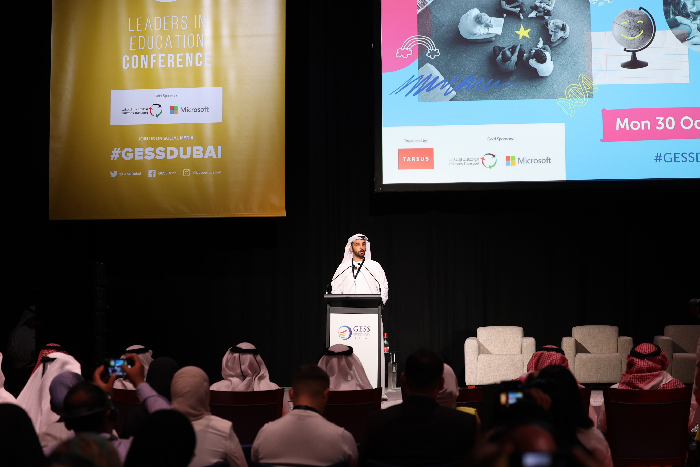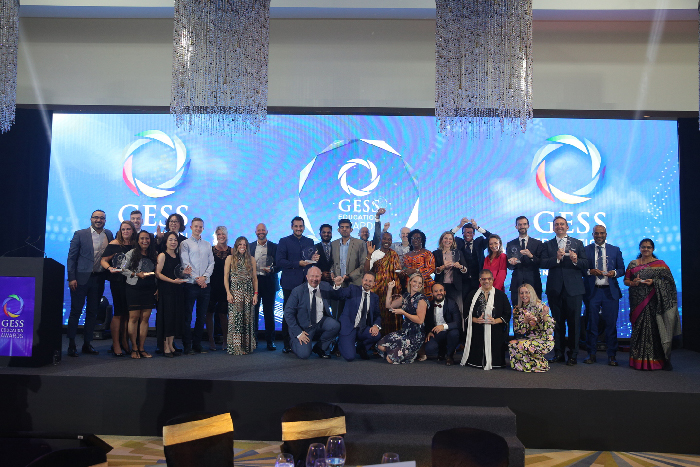The Global Educational Supplies and Solutions (GESS) Dubai, organised by Informa Connect, returns for its highly anticipated 17th edition from November 12 to 14, 2024, at the Dubai World Trade Centre, Sheikh Saeed Halls 1 to 3. This year, the focus is on the rapid adoption of EdTech, particularly augmented reality (AR) and artificial intelligence (AI) technologies, as international schools in the GCC region increasingly allocate their budgets toward these innovative solutions. With the GCC EdTech market projected to grow at a compound annual growth rate (CAGR) of 8.12% from 2024 to 2030, governments across the region are emphasizing education and technology as central pillars in their economic transformation and national development strategies.

Key Factors Driving Competitiveness and Growth
According to data compiled by ISC Research exclusively for GESS Dubai, the growing demand for educational supplies is driven by the number of international schools in the GCC, which has risen to 1,653 (a 6.5% increase from 2023), serving a total student population of 1,712,894 (8.4% increase from 2023). The international schools market continues to develop globally due to increasing globalisation, expatriate mobility, and the growing demand for high-quality, culturally diverse, and internationally recognised education.
Countries pursuing economic stability and prosperity through foreign direct investment (FDI), as well as those committing to substantial public spending, tend to attract a significant influx of international talent and businesses. This not only intensifies the immediate demand for international schooling among expatriate workers but also cultivates a more successful local population inclined to pursue international education over time. In the GCC, strategic development projects such as Saudi Arabia’s Vision 2030, Qatar’s National Vision 2030, and Oman’s Vision 2040 have been instrumental in advancing services, infrastructure, and economic diversification. These initiatives continue to draw expatriates, elevate local affluence, and deepen interest in the global landscape, particularly global education.
Focal Points in the GCC Education Sector
At the forefront of newly emerging technologies in EdTech is Artificial Intelligence and Augmented Reality. Schools across the GCC are adopting new technologies in varied ways, reflecting different levels of enthusiasm and resources. In Qatar, one school has increased fees to fund new systems, devices, and AI exploration, while in Kuwait, schools have broadly accepted AI for tasks like lesson planning and communication. Notably, one Kuwaiti school has found AI particularly useful for supporting second language learners and teachers who are not native English speakers by improving presentations, emails, and other forms of communication. In Bahrain, a school group has developed a custom AI system that administers diagnostic tests and recommends personalised learning opportunities, resulting in a 5% increase in student attainment over the past year.
In Saudi Arabia, international schools are beginning to integrate AI, though most are in the early stages, focusing on administrative tasks and forming committees for faculty upskilling. The UAE is also in a progressive phase of AI adoption, with schools experimenting with tools like ChatGPT for lesson planning and policy writing. The primary focus across the region is on discovering effective methods to incorporate these technologies into the curriculum, while maintaining academic integrity and preventing plagiarism. Despite the progress, comprehensive policies are still evolving, guided by international frameworks like those from the International Baccalaureate Organization (IBO).
Other focal points of investment include infrastructure and maintenance, digital and remote learning tools, and textbooks and educational schemes. Efforts to improve physical environments include adding new science labs, maker spaces, and adaptable furniture for flexible learning spaces. Digital tools have gained prominence, with schools adopting devices like Apple iPads, Google Chromebooks, and educational robots to support flexible and remote learning models. Despite this digital shift, traditional resources like textbooks and new reading schemes remain essential, reflecting a balanced approach that combines both digital and traditional learning modalities to meet diverse educational needs.
School policies are also increasingly prioritising wellbeing, with some adjusting academic schedules to reduce stress and allow more time for rest and extracurricular activities, while also implementing anti-bullying campaigns and initiatives to enhance inclusivity and diversity. This growing emphasis on wellbeing aligns with a shift towards more student-centered educational models, where success is measured not only by academic outcomes but also by the overall health and happiness of students. Additionally, 50% of schools surveyed plan to invest in leadership training to better understand and support the mental health of their teachers.
Harness the Opportunities at GESS Dubai 2024
As the leading education conference and exhibition in the Middle East, GESS Dubai has been at the forefront of educational innovation for 17 years. Exhibitors will have the unique opportunity to engage with over 8,000 educational professionals from around the globe, including key decision-makers and buyers from 74 countries, fostering valuable partnerships and expanding their regional presence.
Beyond the exhibition floor, GESS Dubai’s extensive and free-to-attend CPD accredited conference programme, seminars, and panel discussions will offer exceptional opportunities for professional development and networking. The talks and workshops will be divided into various zones.
- GESS Talks Stage – Speakers and guests from GESS podcasts and webinars will take the stage for dynamic discussions. Attendees will have the opportunity to engage in insightful armchair chats, panel sessions, and solo talks, followed by chances to exchange ideas and deepen their understanding of key topics.
- Leaders in Education Conference – Exclusively for principals and members of Leaders in Education, discussions will focus on the intricate challenges confronted by school leaders, spotlighting the essential skills and attributes needed for effective leadership and triumph in senior roles.
- Sustainability and Wellbeing Hub – Participants will hear from a diverse range of experts, leaders, and teachers as they discuss the integration of sustainability into curricula, address students’ concerns about climate change, explore mindfulness techniques, engage with early years education, and delve into safeguarding practices.
- Gaming @ GESS – New at GESS this year, this area is designed to inspire educators to explore and learn from leading suppliers in gamification, game-based learning, esports, and game design. Attendees will discover how gaming can enhance student engagement, create opportunities, and foster growth; and will feature Q&A demos, solo sessions, panel discussions, and student-led game tournaments.
- Product Showcase – Exhibitors will showcase the latest innovations in products and services live to an audience of educational buyers, opening conversations and explorations on how these offerings can be integrated into their educational institutions.
- Workshop Space – In the workshop space, delegates will have the opportunity to engage with speakers and experts in extended sessions that offer course tasters and insights into coursework. These sessions will include in-depth debates, Q&A opportunities, and active, creative participation throughout the conference.


COMMENTS